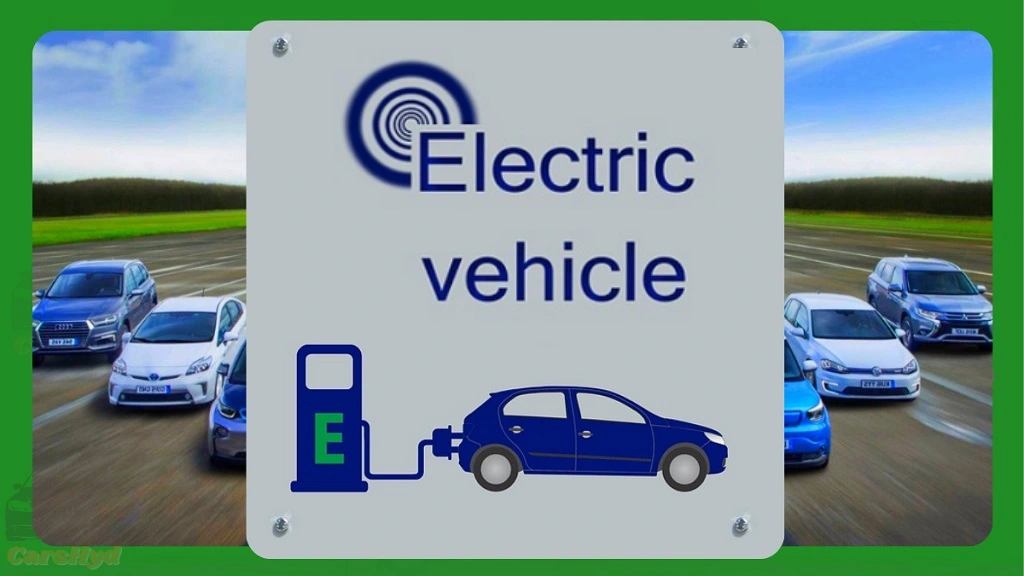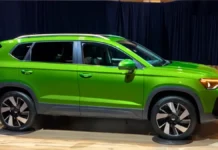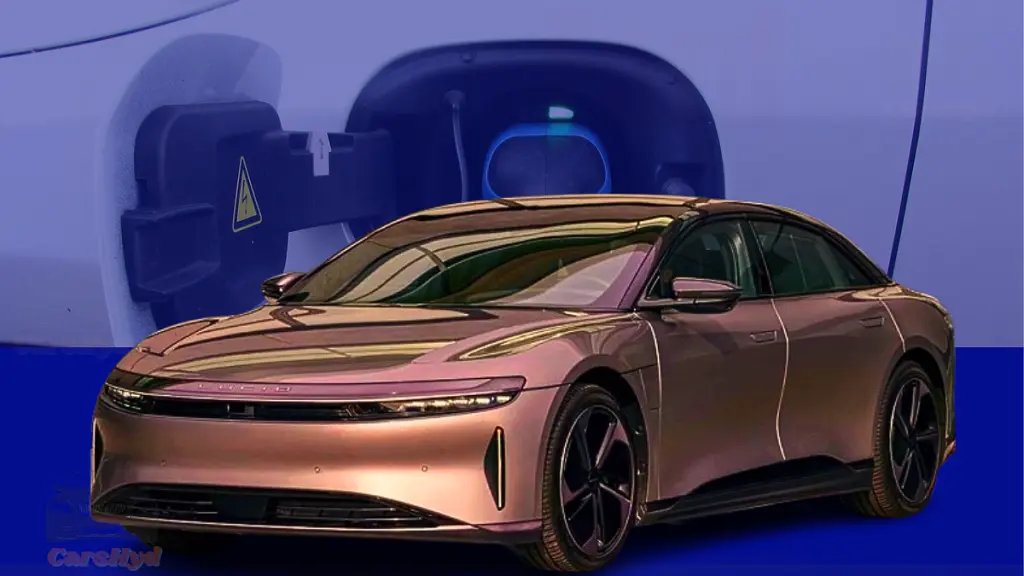Electric cars (EVs) have quickly become a major part of the automotive landscape, with a growing range of options available in the U.S. market. From high-end models like the Tesla Model S and Porsche Taycan to more affordable compact cars like the Nissan Leaf and Chevy Bolt, there’s now an EV for virtually every type of driver. As consumer interest in electric vehicles continues to rise, with EV sales in the U.S. increasing by over 50% in recent years, it’s important to understand how to choose the right one for your needs and budget.
Whether you’re interested in making the switch to electric for environmental reasons, to reduce fuel costs, or to embrace cutting-edge technology, this guide will provide you with all the information you need to make an informed decision to Choose the Right Electric Car.
Table of contents
- What is an Electric Car?
- Price Range: How Much Does an Electric Car Cost?
- Government Incentives and Tax Benefits for Electric Vehicles
- Types of Electric Cars: What’s Available?
- How Long Do Electric Car Batteries Last?
- Charging Your Electric Car: Everything You Need to Know
- How to Maximize Your EV’s Battery Life
- Is an Electric Right Car for You?
- FAQs About to Choose the Right Electric Car
What is an Electric Car?
An electric vehicle (EV) operates solely on electricity, powered by an electric motor rather than a conventional internal combustion engine (ICE). These vehicles use one or more electric motors to turn the wheels, and their energy comes from rechargeable batteries. In rare cases, some vehicles use hydrogen fuel cells to produce electricity, but the majority of modern electric cars rely on lithium-ion batteries.
One of the key benefits of electric cars is their zero tailpipe emissions. Unlike gasoline-powered vehicles that release harmful pollutants into the air, EVs produce no such emissions, making them a cleaner and more sustainable transportation option.
Price Range: How Much Does an Electric Car Cost?
When it comes to electric vehicles, prices can vary significantly based on the make, model, and features you choose. For example, the affordable Nissan Leaf starts at around $28,000, while high-performance luxury models like the Porsche Taycan Turbo S can exceed $100,000.
In general, electric cars tend to be more expensive than their gasoline counterparts due to the cost of their advanced battery technology. A compact EV like the Chevy Bolt may cost around $32,000, while a similarly sized gas-powered car could be priced $5,000 to $8,000 less. However, the price difference is often offset by the long-term savings in fuel costs and government incentives.
Government Incentives and Tax Benefits for Electric Vehicles
To make EVs more affordable, the U.S. government and various state programs offer a range of incentives and rebates. These programs can significantly reduce the purchase price of a new electric car, making them a more attractive option for consumers.
Federal Tax Credit
The U.S. federal government offers a tax credit of up to $7,500 for new electric vehicles. The amount of the credit depends on the battery size and the car manufacturer, with larger batteries often qualifying for higher credits. However, once an automaker sells 200,000 qualifying electric cars, the tax credit begins to phase out. Tesla and General Motors have already reached this threshold, but other manufacturers, such as Ford, Nissan, and Rivian, are still eligible for the full credit.
State and Local Incentives
In addition to the federal tax credit, many U.S. states offer their own incentives for purchasing an electric vehicle. These incentives vary widely, with some states offering rebates, tax credits, or exemptions from sales tax and vehicle registration fees. For example, California offers rebates up to $2,000 for the purchase of a new electric vehicle, while Colorado provides a tax credit of up to $4,000 for qualifying EVs.
Additionally, certain localities may provide perks like free charging stations, access to carpool lanes, or discounts on tolls.
Types of Electric Cars: What’s Available?

The range of electric cars available in the U.S. market is more diverse than ever. From compact hatchbacks to spacious SUVs, there’s a model for nearly every driving need.
Compact Electric Cars
If you’re looking for an affordable and practical option, compact EVs like the Nissan Leaf, Chevy Bolt, and Mini Cooper SE are great choices. These cars are ideal for city driving and offer a balance of range, affordability, and practicality. For example, the Nissan Leaf offers an estimated range of up to 226 miles per charge, making it a solid option for daily commuting.
Luxury Electric Cars
For those who want a more high-end experience, luxury EVs like the Tesla Model S, Audi e-Tron, and BMW i4 offer powerful performance and premium features. These vehicles typically come with longer ranges and more advanced technology, such as autonomous driving capabilities. The Tesla Model S, for instance, boasts a range of up to 405 miles, along with lightning-fast acceleration and cutting-edge infotainment systems.
Electric SUVs
SUVs have become a popular choice for American drivers, and electric SUVs are no exception. The Ford Mustang Mach-E, Volkswagen ID.4, and Hyundai Kona Electric are all excellent choices for those who need more space and versatility. These models offer the comfort and cargo space of an SUV while maintaining the eco-friendly benefits of an electric vehicle. The Ford Mustang Mach-E, for example, offers up to 312 miles of range and a spacious interior with a modern design.
Electric Trucks
Electric trucks are rapidly gaining popularity, with models like the Rivian R1T, Ford F-150 Lightning, and the upcoming Tesla Cybertruck making waves in the automotive industry. These electric trucks are designed to offer the power, towing capacity, and ruggedness of traditional pickup trucks, but with the added benefit of zero emissions and lower operating costs. The Ford F-150 Lightning, for example, offers an impressive 300-mile range and the ability to tow up to 10,000 pounds.
How Long Do Electric Car Batteries Last?
One of the biggest concerns for potential EV buyers is the longevity of the car’s battery. The good news is that modern electric car batteries are designed to last for a long time. On average, most electric vehicle batteries will last between 8 and 10 years, or about 100,000 to 150,000 miles, depending on driving habits and climate conditions.
Tesla, for example, offers an 8-year warranty on its vehicle batteries, with a minimum of 70% battery capacity retention. Other manufacturers, such as Chevrolet and Nissan, also provide similar warranties for their EV batteries.
Battery life can be influenced by factors like driving conditions, charging habits, and the frequency of fast charging. To maximize battery life, it’s best to avoid charging the battery to 100% all the time and to keep it within the recommended range of 20% to 80% for regular use.
Charging Your Electric Car: Everything You Need to Know
Charging an electric vehicle is relatively simple, but there are a few factors to keep in mind. There are three main types of charging options:
- Level 1 Charging (Standard 120V outlet)
Level 1 charging is the slowest option and involves plugging your EV into a standard home outlet. It provides about 3-5 miles of range per hour of charging, so it’s best suited for overnight charging or for those who don’t drive long distances daily. - Level 2 Charging (240V outlet)
Level 2 chargers are faster and are typically installed in homes or public charging stations. They provide about 10-60 miles of range per hour of charging, depending on the vehicle and the charger’s power output. Many electric vehicle owners install a Level 2 charger at home to ensure faster charging. - DC Fast Charging (Public Charging Stations)
DC fast chargers are the quickest way to charge an electric car, providing up to 80% charge in about 30 minutes. These chargers are typically found at public charging stations along highways, making them ideal for long trips. However, frequent use of fast charging can affect the long-term health of the battery.
How to Maximize Your EV’s Battery Life
Proper care and maintenance of your electric car’s battery can help extend its lifespan. Here are a few tips to keep your battery in good condition:
- Charge Between 20% and 80%: Avoid charging your EV to 100% or letting it fall below 20% whenever possible.
- Avoid Fast Charging Regularly: While fast charging is convenient, it generates more heat and can reduce the overall lifespan of the battery.
- Park in a Cool Place: Extreme temperatures, both hot and cold, can impact battery life. Whenever possible, park your EV in a garage or shaded area to avoid prolonged exposure to extreme weather conditions.
Is an Electric Right Car for You?
With the growing availability of electric cars, government incentives, and environmental concerns, there has never been a better time to consider making the switch to an electric vehicle. Whether you’re looking for an eco-friendly commuter car, a luxury sedan, or a family-friendly SUV, there are electric vehicles to suit nearly every need and budget.
By considering factors like price, range, charging infrastructure, and government incentives, you can make an informed decision that aligns with your driving habits and lifestyle. Electric cars are not just a passing trend, they are the future of transportation.
FAQs About to Choose the Right Electric Car
1. What is an electric car?
An electric car is a vehicle powered entirely by electricity stored in batteries, unlike traditional cars that rely on internal combustion engines. It uses one or more electric motors to propel the vehicle, making it a clean and energy-efficient alternative to gasoline-powered cars.
2. How much does an electric car cost?
Electric car prices can vary significantly depending on the model, brand, and features. Prices typically range from as low as $7,000 for smaller, budget-friendly vehicles (like the Citroën Ami, though this is not sold in the U.S.) to over $100,000 for luxury models such as the Porsche Taycan Turbo S or Tesla Model S. Mid-range options, like the Nissan Leaf or Chevrolet Bolt, usually start at around $25,000 to $40,000.
3. Are there any incentives for buying an electric car?
Yes, in the United States, there are various federal and state incentives to make electric vehicles more affordable. The Federal EV Tax Credit can offer up to $7,500 off the purchase price of a new electric car, depending on the battery capacity and the vehicle’s manufacturer. Additionally, many states offer rebates, tax credits, and exemptions from sales tax or registration fees to further reduce costs.
4. What types of electric cars are available?
Electric vehicles come in various categories, including:
- Compact cars like the Nissan Leaf or Mini Cooper SE.
- Sedans such as the Tesla Model 3 or the BMW i4.
- SUVs like the Ford Mustang Mach-E or the Audi e-Tron.
- Luxury sports cars including the Porsche Taycan or Tesla Model S.
There are also options for trucks and larger vehicles, such as the upcoming electric Ford F-150 Lightning and the Rivian R1T.
5. How long does it take to charge an electric car?
The charging time for an electric vehicle depends on the charging method:
- Level 1 charging (standard home outlet) takes the longest, typically 8-12 hours for a full charge.
- Level 2 charging (dedicated home charger or public stations) can charge a car in 4-6 hours.
- DC fast charging can provide an 80% charge in 30-45 minutes, depending on the vehicle and charging station.
6. What is the range of an electric car?
The range of an electric car—the distance it can travel on a full charge—varies by model. Most modern EVs offer a range between 150 to 370 miles per charge. For example, the Tesla Model S offers over 370 miles, while the Nissan Leaf provides about 150 miles. Factors like driving habits, terrain, and climate can influence the actual range.
7. How long does an electric car battery last?
The lifespan of an electric car battery typically ranges from 8 to 10 years or around 100,000 to 150,000 miles. However, advancements in battery technology are continuously improving, and many manufacturers offer warranties for up to 8 years with a minimum capacity of around 70-80%. Regular maintenance, optimal charging practices, and storage in moderate temperatures can help extend battery life.
8. Can I use an electric car for long road trips?
Yes, but planning is key. With the growing number of fast-charging stations across the U.S., long trips are becoming easier for EV owners. Tesla’s Supercharger network is particularly widespread and provides a fast, reliable way to recharge. Other EV manufacturers, like Ford and Rivian, are working on expanding their fast-charging networks as well.
9. How do I maintain an electric car?
Electric cars are generally easier to maintain than traditional vehicles due to fewer moving parts. Most of the maintenance involves:
- Keeping the battery charged and maintaining tire pressure.
- Periodically checking brake pads (although EVs use regenerative braking, which reduces wear).
- Monitoring fluid levels (e.g., brake fluid).
- Ensuring the electric motor and other components are functioning properly.
10. Are electric vehicles safe?
Yes, electric vehicles are designed with high safety standards and undergo rigorous crash tests. In fact, EVs often perform well in safety tests due to their lower center of gravity (thanks to battery placement), which reduces the likelihood of rollovers. Many EVs also come equipped with advanced driver assistance systems (ADAS) like lane-keeping assistance, automatic emergency braking, and adaptive cruise control.
11. Can I charge an electric car at home?
Yes, most electric car owners install a Level 2 home charging station for faster charging. While Level 1 charging (using a standard home outlet) is possible, it’s slower and might not be practical for daily use, especially if you have a longer commute. Installing a Level 2 charger typically costs between $500 and $2,000, including the cost of installation.
12. How do I choose the best electric car for my needs?
When choosing an electric car, consider the following factors:
- Budget: Determine your price range and explore available incentives.
- Range: Choose an EV that can comfortably cover your daily driving needs.
- Charging options: Consider how and where you’ll charge the car.
- Features and size: Think about the type of vehicle (compact, sedan, SUV) and features like cargo space, infotainment, and comfort.
- Brand reputation: Research manufacturer reliability, customer service, and warranty coverage.
13. Are electric cars worth the investment?
Electric cars are becoming increasingly cost-effective with rising fuel prices and improved battery technology. They often offer lower maintenance costs compared to traditional cars, and many owners save money over time through fuel savings. However, the initial purchase price can be higher, which is why many consumers take advantage of available incentives to offset the cost.
14. Do electric cars require special insurance?
Electric vehicles do not require special insurance, but they can be more expensive to insure than traditional cars, primarily due to their higher purchase price and the cost of replacing the battery. However, as the market for EVs grows, insurance companies are starting to offer more competitive rates for electric vehicles.
15. How do I dispose of or recycle an electric car battery?
Electric car batteries can be recycled or repurposed when they no longer hold enough charge for use in a vehicle. Manufacturers and recycling companies work together to safely handle and recycle lithium-ion batteries, often turning them into materials for use in new batteries or other products. Many manufacturers, including Tesla and Nissan, have battery recycling programs in place.





















